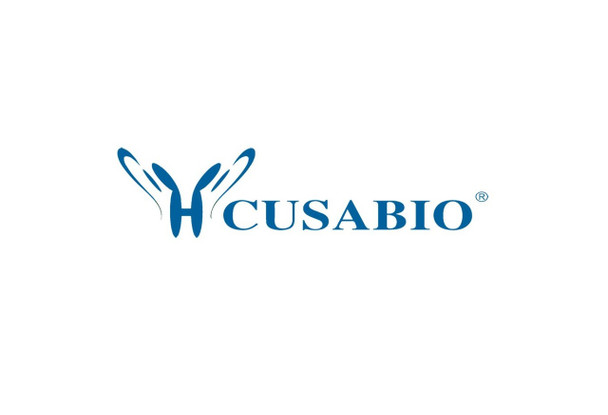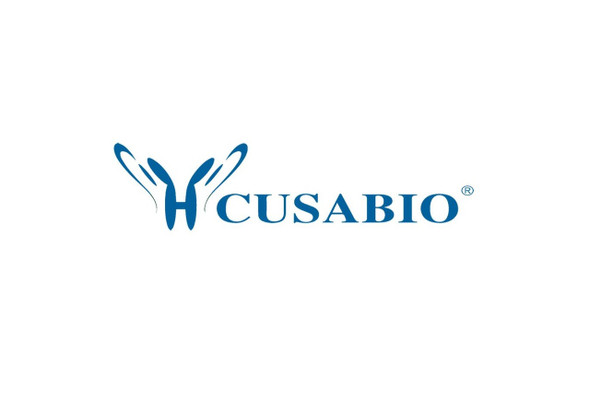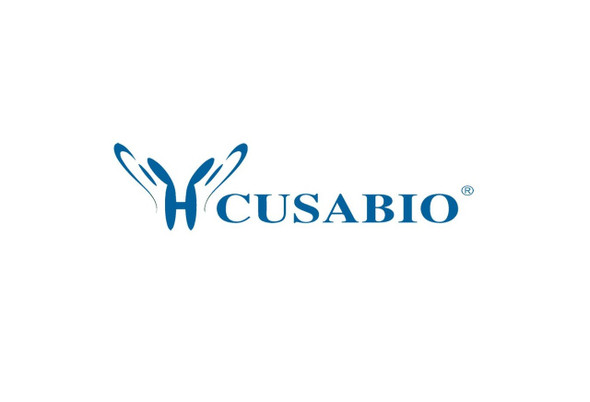Cusabio Human Recombinants
Recombinant Human Acyl-CoA 6-desaturase (FADS2), partial | CSB-EP007960HU
- SKU:
- CSB-EP007960HU
- Availability:
- 13 - 23 Working Days
Description
Recombinant Human Acyl-CoA 6-desaturase (FADS2), partial | CSB-EP007960HU | Cusabio
Alternative Name(s): Acyl-CoA 6-desaturase Delta(6) fatty acid desaturase Short name: D6D Short name: Delta(6) desaturase Short name: Delta-6 desaturase
Gene Names: FADS2
Research Areas: Cardiovascular
Organism: Homo sapiens (Human)
AA Sequence: MGKGGNQGEGAAEREVSVPTFSWEEIQKHNLRTDRWLVIDRKVYNITKWSIQHPGGQRVIGHYAGEDATDAFRAFHPDLEFVGKFLKPLLIGELAPEEPSQDHGKNSKITEDFRALRKTAEDMNLFKTNHV
Source: E.coli
Tag Info: N-terminal 6xHis-SUMO-tagged
Expression Region: 1-131aa
Sequence Info: Partial
MW: 30.9 kDa
Purity: Greater than 90% as determined by SDS-PAGE.
Relevance: Component of a lipid metabolic pathway that catalyzes biosynthesis of highly unsaturated fatty acids (HUFA) from precursor essential polyunsaturated fatty acids (PUFA) linoleic acid (LA) (18:2n-6) and alpha-linolenic acid (ALA) (18:3n-3). Catalyzes the first and rate limiting step in this pathway which is the desaturation of LA (18:2n-6) and ALA (18:3n-3) into gamma-linoleic acid (GLA) (18:3n-6) and stearidonic acid (18:4n-3) respectively and other desaturation steps. Highly unsaturated fatty acids (HUFA) play pivotal roles in many biological functions. It catalizes as well the introduction of a cis double bond in palmitate to produce the mono-unsaturated fatty acid sapienate, the most abundant fatty acid in sebum.
Reference: "Cloning, expression, and nutritional regulation of the mammalian Delta-6 desaturase."Cho H.P., Nakamura M.T., Clarke S.D.J. Biol. Chem. 274:471-477(1999)
Storage: The shelf life is related to many factors, storage state, buffer ingredients, storage temperature and the stability of the protein itself. Generally, the shelf life of liquid form is 6 months at -20?/-80?. The shelf life of lyophilized form is 12 months at -20?/-80?.
Notes: Repeated freezing and thawing is not recommended. Store working aliquots at 4? for up to one week.
Function: Component of a lipid metabolic pathway that catalyzes biosynthesis of highly unsaturated fatty acids (HUFA) from precursor essential polyunsaturated fatty acids (PUFA) linoleic acid (LA) (18
Involvement in disease:
Subcellular Location: Endoplasmic reticulum membrane, Multi-pass membrane protein
Protein Families: Fatty acid desaturase type 1 family
Tissue Specificity: Expressed in a wide array of tissues, highest expression is found in liver followed by brain, lung, heart, and retina. A lower level is found in breast tumor when compared with normal tissues; lowest levels were found in patients with poor prognostic index.
Paythway: PPARsignalingpathway
Form: Liquid or Lyophilized powder
Buffer: If the delivery form is liquid, the default storage buffer is Tris/PBS-based buffer, 5%-50% glycerol. If the delivery form is lyophilized powder, the buffer before lyophilization is Tris/PBS-based buffer, 6% Trehalose, pH 8.0.
Reconstitution: We recommend that this vial be briefly centrifuged prior to opening to bring the contents to the bottom. Please reconstitute protein in deionized sterile water to a concentration of 0.1-1.0 mg/mL.We recommend to add 5-50% of glycerol (final concentration) and aliquot for long-term storage at -20?/-80?. Our default final concentration of glycerol is 50%. Customers could use it as reference.
Uniprot ID: O95864
HGNC Database Link: HGNC
UniGene Database Link: UniGene
KEGG Database Link: KEGG
STRING Database Link: STRING
OMIM Database Link: OMIM









